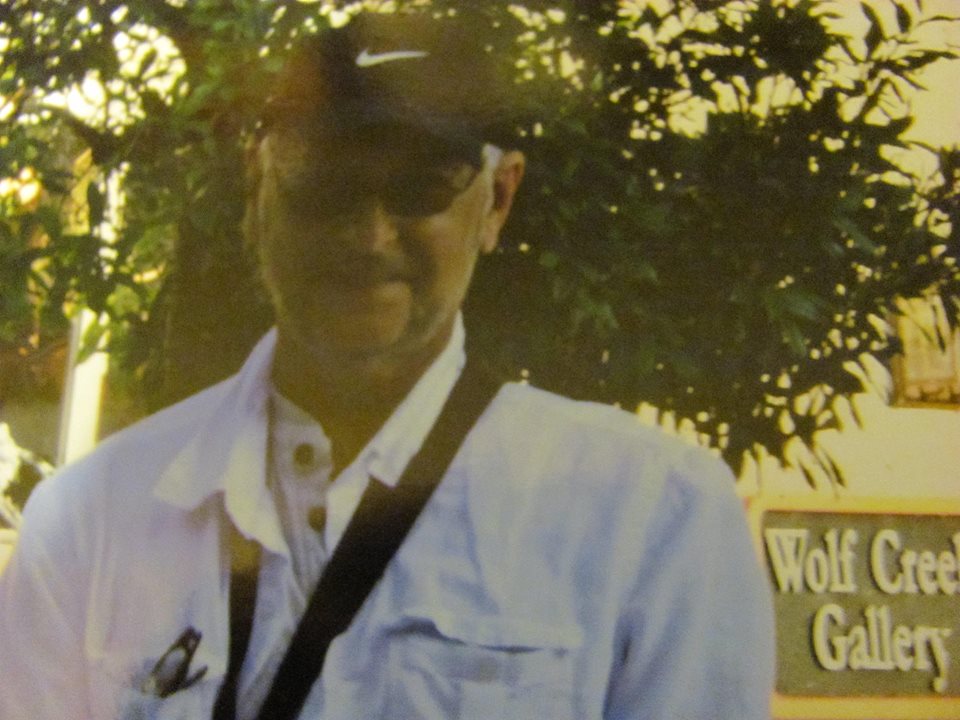ANASTASIA by Louis Gallo

ANASTASIA
by Louis Gallo
I assume I’m finally getting somewhere
here at massive Midwest U where I’m grinding
toward a grad degree and teaching comp
which no one can really teach anyway or learn –
either you’ve got it or you don’t – and I’m taking
this useless class in Victorian Lit where right beside me
up front sits Anastasia, doing the same thing I’m doing,
trying to get somewhere, and she is freaking gorgeous
in an old-fashioned Debbie Reynolds way, modest, reserved, shy,
sweet, all those ancient virtues, and still the prettiest girl
in the entire Midwest (that I’ve seen anyway) but I spot
the wedding ring right off and that’s a bummer
but I’ve learned in my meager twenty-four years
that everyone is hungry, all the time, everyone craves,
everyone breaks the rules because rules disfigure the spirit,
so of course I flirt with her, and I do all the talking
in class (so much so that the lisping, rotund professor
takes me aside one day and in effect tells me to shut up)
and as we’re walking back to our cubicles she says
she’s impressed with my mind, imagine a beautiful woman
telling you that, it’s double-edged, I’d prefer body,
but mind’s ok though I have never thought much of mine
because I can’t come close to grasping math
of any kind and that’s where the real geniuses tread,
I even had to memorize the text book in calculus at Tulane
to pass the course . . . well, she is the one with mind, I swear,
and that makes it all the better, and I sometimes think
I must be afflicted with that Stendhal syndrome: beauty
inducing tremors, full body sweats, vertigo, panic . . .
because I feel them all when I see her, and we’re reading
in class Childe Roland to the Dark Tower Came and it
stuns me as well, the emaciated horse, the absurd journey,
Childe tooting his paltry horn when he finally reaches the squat
dark tower, the desolation, the horror and futility,
and the professor tells us it’s an affirmative piece of work
and I shudder at his ignorance, but that’s all beside the point
because all the while I’m dreaming of Anastasia without clothes
and we go out for coffee a lot at the student union
and she tells me the sad story of her marriage to a guy
who five years before was injured in a trucking accident
that paralyzed him from the waist down and when I ask
if that means what I think it means she starts to cry and nods
and I see that this poor women is dreadfully unhappy
and wonder how she can always pull off the cheerful routine
which she does immaculately because with me I can’t hide it,
it erodes my face and spirit, it consumes me and there’s no way
to disguise it and I see no reason to . . .
so of course we start meeting at night
sometimes in dark empty classrooms on the third floor
of Arts & Sciences, sometimes in my car on the edge
of lonely mud roads and sometimes in the university’s
greenhouse at night when no one is around, its glass walls
awash with condensation, the sleepy plants effusing chlorophyll,
and believe me she is into it and always intense and I’m confused
because there must be some immorality going on here
and I wonder who’s the guiltier, so I just assume me
since I’m always guilty, which doesn’t ever stop me
because I can’t resist, I have no self-control, I’m low, man, low . . .
confusing me most is that Anastasia is so decent, ethical,
moral, god-fearing, good, reliable, punctual, faithful, etc.,
a succulent, sexy Betty Crocker, none of which tallies
with what we do in the greenhouse or the back seats of cars
or those empty classrooms . . . and I wonder too about
the paralyzed husband, what a lousy fucking break (literally),
and if Einstein asks right now “Is the universe friendly?”
I’ll kick him in his e=mc2 ass, friendly? to deprive a young man
of his splendid hormonal woman for a despoiler like me?
and oh yeah that lispy professor starts to call on me in class
because no one wants to discuss Childe Roland and I refuse
to say another word, and no one says another word, and the class
dies and he doesn’t get tenure and winds up selling insurance . . .
and in the end when I’m about to move back to the Deep South
and Anastasia and I must part, it’s not so smooth and she too
decides never to speak another word to me, and I don’t get it,
nobody’s talking to anybody, it’s silent as outer space . . .
and before that she once asked me why I didn’t call her Ana
which is what everybody calls me, and I say that I will never
call you Ana, only Anastasia, because you’re the lost Romanov,
the empire, the Faberge eggs, the heir – and just pray
another Lenin doesn’t come along or something worse than Lenin.
But then, that’s already happened.
###
Louis Gallo’s work has appeared or will shortly appear in Southern Literary Review, FictionFix, Glimmer Train, Hollins Critic, Rattle, Southern Quarterly, Litro, NewOrleans Review, Xavier Review, Glass: A Journal of Poetry, Missouri Review,Mississippi Review, Texas Review, Baltimore Review, Pennsylvania LiteraryJournal, The Ledge, storySouth, HoustonLiterary Review, Tampa Review, Raving Dove, The Journal (Ohio), Greensboro Review,and many others. Chapbooks include The Truth Change, The Abominationof Fascination, Status Updates and The Ten Most Important Questions. He is the founding editor of the now defunct journals, The Barataria Review and Books: A New Orleans Review. He teaches at Radford University in Radford, Virginia.